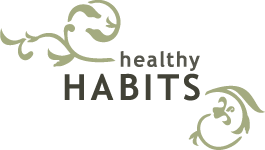Cholesterol (a steroid lipid) has been vilified, leading many to believe that it is a leading cause of heart disease. Routinely doctors monitor our blood cholesterol to see if a cholesterol lowering medication should be prescribed to lower our risk of heart disease.
The usual recommendation is to consume no more than 300 mg of cholesterol a day. The body is only able to absorb approximately 25% of dietary cholesterol anyways. And the body already produces 1000 mg of cholesterol a day for regular bodily functions.
The egg, which has also been vilified, contains 210 mg of cholesterol. Other foods with high amounts of cholesterol are liver, butter, shrimp, shellfish and cheese.
New research shows however that an egg a day WILL NOT increase your risk of heart disease. It is a myth. Science is showing more clearly that it isn’t eating cholesterol that will increase your blood cholesterol, but instead eating too much saturated fat, trans fats and sugar will.
In regards to saturated fats, it is the long-chain saturated fats that have an effect on blood cholesterol. Short and medium-chain saturated fats found in dairy, coconut and palm oil do not raise cholesterol levels in the blood. The egg has only 1.5 g of saturated fat and no trans fat. And 71% of the fat in butter does not have an effect on blood cholesterol.
Instead of talking so negatively about cholesterol here are some of its health benefits.
- It is an abundant antioxidant. Antioxidants neutralize the free radicals that contribute to disease by damaging cells. Free radical damage in the arteries of the heart is what INITIATES heart disease.
- Cholesterol builds and regulates cell wall membranes helping to maintain the integrity of all cell walls.
- Cholesterol is the building block of our sex hormones so lowered levels can have a negative impact on fertility and libido.
- Cholesterol regulates the serotonin receptors in the brain. If an individual’s cholesterol levels are regulated down to a point below what is normal for them, their mood can become sombre or progress towards depression.
- Cholesterol is the precursor to bile acids, which are needed to digest and absorb long-chain fatty acids.
- Cells lining the digestive tract are particularly rich in cholesterol, it plays an important structural role for this organ.
- It is a precursor to vitamin D so it is no coincidence that cholesterol is found in higher amounts in eggs, butter and liver that all have some vitamin D as well.
So go ahead and have some eggs and some butter too!
And have a look at our blog from February 14, 2014 and you’ll see that it is the sugar, not the fat, that is killing us.
